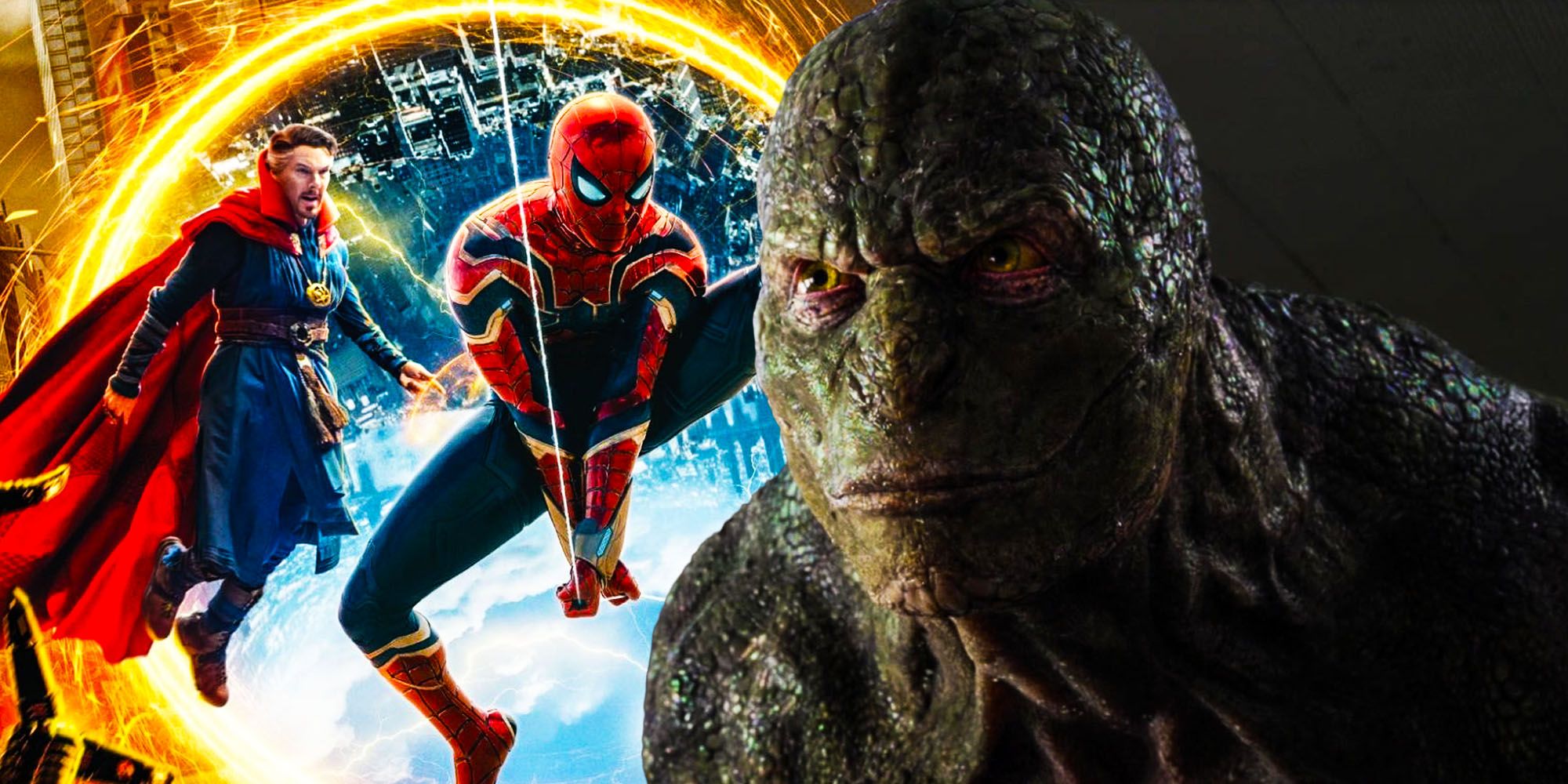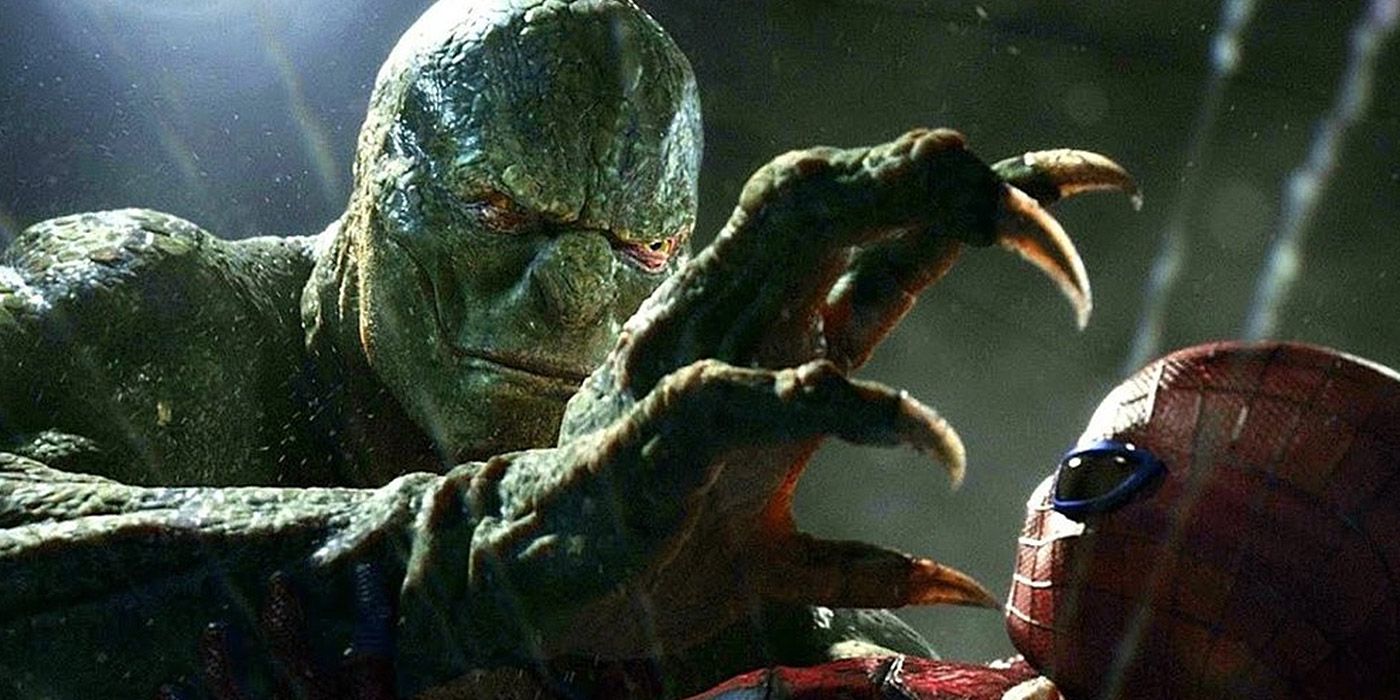Warning: This article contains spoilers for Spider-Man: No Way Home.
Supervillains from Sony’s previous Spider-Man film franchises return in Spider-Man: No Way Home, but the Lizard is subtly shown to be the film’s most emotionally complex villain. Thanks to a botched reality-warping spell, Doctor Strange and Spider-Man inadvertently bring five supervillains from other realities into theirs, each one aware of the web-slinger’s secret identity. In the process of curing these villains of their conditions (rather than condemning them to their deaths), Parker learns that (most of) these villains aren’t truly malicious, and the film highlights why the Lizard is perhaps the most layered of the quintet.
The Lizard was the antagonist of 2012’s The Amazing Spider-Man, initially the kindly and altruistic scientist Doctor Curt Connors. Doctor Connors tested a regenerative serum on himself, restoring his missing arm but gradually turning him into a gigantic reptile in the process. The serum warped Connors’ mind as well, and he resolved to transform everyone in New York into a humanoid lizard as well (and was willing to kill anybody who opposed him). Andrew Garfield’s Spider-Man defeated the Lizard, however, turning him back into Doctor Connors with an antidote.
Doctor Connors returns in Lizard form in No Way Home, menacing Tom Holland’s Spider-Man (as well as Andrew Garfield and Tobey Maguire’s iterations), but the film takes time to remind viewers of Connors’ intrinsic (if misguided) altruism while he’s a prisoner in Doctor Strange’s Sanctum Sanctorum. The Lizard reinforces his motivation in his 2012 debut, stating that his master plan was meant to help humanity evolve and improve. The film adds another curious detail that some viewers might easily overlook: Doctor Connors was kind to Max Dillon, remembering him from before he became the supervillain Electro.
The second of the two Marc Webb-era Spider-Man villains to appear in No Way Home, Max Dillon was an electrician for Oscorp who was tragically mistreated, ignored, and underappreciated, especially by his co-workers. After a laboratory accident gave him incredible electrical superpowers, Dillon became the supervillain Electro out of both a misunderstanding with Spider-Man and a desire to finally be seen and appreciated. Out of every character who interacted with Dillon in The Amazing Spider-Man 2, only Spider-Man and Gwen Stacy treated him with respect and kindness. Harry Osborn, the eventual Green Goblin, was only interested in using Dillon as an enforcer, not being his friend.
While both villains were in Doctor Strange’s captivity, Doctor Connors comments on Electro’s new appearance but does not refer to his electrician’s outfit and yellow lightning. The Lizard was more accustomed to Dillon before his accident when his appearance was meeker and more unassuming. This subtle detail in No Way Home’s dialogue reveals that Doctor Connors, Lizard or not, noticed Dillon and cared enough about him to ask about his new appearance.
The Lizard’s depiction in No Way Home is one of the clearest examples of why the three Spider-Man iterations were right to redeem their villains instead of killing them. Doctor Connors was determined to fulfill a destructive goal, but he genuinely believed himself to be helping people. Without the influence of the Lizard serum, Doctor Connors is a genuinely good man who even helps Spider-Man on occasion. In his 2012 debut, Doctor Connors saves Spider-Man from a fatal fall once he’s back in human form. In the 2012 Amazing Spider-Man video game, which is an epilogue to the film, Doctor Connors provides Spider-Man with invaluable assistance and even fights alongside him as the Lizard (during a brief moment where he retains his human mind while in Lizard form). Spider-Man: No Way Home honors these depictions of the Lizard, making him one of the most complex villains in the MCU movie.







